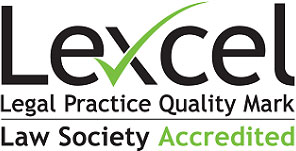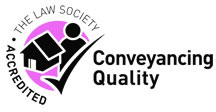Online fraud has boomed during the pandemic, with one police force reporting a 400 per cent rise in offences. While your home may not seem like an obvious target, more and more criminals are turning to property transactions because of the large sums of money involved.
Here, Nicola Bennell, Solicitor and Head of Richard Reed’s residential property team, gives some advice on how you can avoid becoming a victim.
Be aware of the different types of property fraud
Research shows people often worry about credit card scams more than conveyancing fraud. This is despite losses from property fraud being much greater in value, with some customers struggling to recover their money. A bank may refuse a refund if it acted on genuine instructions, even if the customer was tricked.
If you are buying or selling a property, a fraudster could target you in different ways:
- He may pretend to be a conveyancer or to work for a real law firm. These deceptions can be very sophisticated; tricking buyers, sellers, lenders, or their solicitors, into sending money to bogus accounts.
- He may intercept correspondence between you and your conveyancer. He may then send a letter or email asking you to transfer money. The request may look like it comes from your conveyancer, but the fraudster will have changed the bank account details.
- He may steal your identity, or another person’s, to create fake documents to transfer title to a property he does not own.
The pandemic has created a fertile environment for fraudsters: fewer face-to-face meetings, greater reliance on email and remote working, staff shortages, home movers struggling to beat the stamp duty deadline or just trying to keep up with the ever-changing lockdown restrictions.
Under pressure or potentially distracted, it is easy to miss the warning signs. Fortunately, there are some simple precautions you can take to stay safe.
Always check your emails carefully
A fraudster could hack into emails between you and your solicitor, effectively hijacking the conveyancing process. However, cyber-criminals harvest data in many ways, for example, through insecure wi-fi systems. So, it is always important to check the emails you receive carefully.
Look for misspellings, grammatical errors, or anything unusual like a change in the way you are addressed. Check the sender’s email address closely. Compare it to previous correspondence with your solicitor or their website. Roll your mouse over the sender’s name to reveal their true email address: a fraudster may make small changes to fool you. Be cautious of any embedded hyperlinks too. These could lead to a bogus site.
Even so, it can sometimes be hard to spot a fake. Query any email which asks you to do something unexpected or out of the ordinary or pushes you to proceed very quickly. The same applies to letters or phone calls from people you do not recognise. If in doubt, speak to your conveyancer, ideally calling her on the number she gave you at the start of your transaction. It is much better to be safe than sorry.
Take extra care with money transfers and bank details
Check any request to transfer money very carefully, especially any described as urgent or which you have not been expecting.
Three quarters of all cybercrimes reported to the Solicitor’s Regulation Authority are so-called ‘Friday Afternoon Frauds’. Most conveyancing transactions complete on a Friday when banks and offices are at their busiest, and when the intervening weekend may delay discovering any discrepancy.
You will have lots to think about when moving home, but it is especially important to take care when transferring completion funds.
Your solicitor should have given you details of the law firm’s bank account early on in your transaction, ideally in a secure format. Make sure the account details agree. It is unlikely she will change them or ask you to transfer money to a third party. So, confirm any changes with her personally. If in doubt, transfer a small amount of money first, then call her and check she has received it.
Similarly, if you are a seller, tell your solicitor where to send the sale proceeds early on. Confirm these details by speaking to her on the phone or in person. Agree at the outset not to change your designated bank account.
Choose the right conveyancing solicitor
Your solicitor should be someone you can really trust; an expert in her field, up-to-date with modern technology, and able to give you her individual attention. This is especially important in the pandemic, when a rapidly changing environment increases the risk of fraud.
Your solicitor should have robust systems in place to protect you. She should explain these to you at the outset but be ready to ask about the steps her firm takes to reduce the risk of fraud. Does it make the most of technological solutions? For example, by encrypting emails, using password-protected portals and online verification of identity. Most importantly, is she conscientious and proactive in addressing risk? At times like these, awareness and consistency are two of your best safeguards. You need a conveyancing solicitor you can rely on, who will look out for you, and with whom you can discuss any concerns personally.
Protecting your property
Unfortunately, the possibility of property fraud does not disappear completely, even when you have successfully completed your purchase. A fraudster could still use your details to deceive a buyer, or mortgage lender, pretending he is the owner of your home and creating a sham transaction.
Your solicitor will have registered you as the owner of your property at HM Land Registry. If the fraudster, or the person he has duped, tries to register a fake transfer or a charge, he is more likely to be found out. The Land Registry also offers a Property Alert service. This is free and means the Land Registry will send you an email alert if anyone applies to register a change in ownership or a new charge against your property.
Protecting the vulnerable
Some properties are especially attractive to fraudsters. This could be because their owners are vulnerable, for example the very elderly, those with dementia or who otherwise lack mental capacity. Alternatively, the property may be empty or tenanted, the owners less likely to be aware of what is going on.
If you or a close family member are vulnerable, or if you are an absent owner, talk to your solicitor. She can suggest some simple ways of reducing the risks. For example, making sure the Land Registry sends correspondence and notices to your preferred address rather than to a property you do not occupy. The entry of a restriction against your registered title can also prevent a transfer or charge from being completed unless a conveyancer certifies it is made by you.
Sadly, no system is entirely foolproof. However, choosing the right solicitor, and following her advice, is the best way of keeping your property transaction safe.
For further information, please contact Nicola or a member of her team on 0191 567 0465 or email us at: [email protected]









